This year, the Music department is delighted to welcome Erasmus student, Laura Osswald, here for two terms as part of her studies in the School of Psychology. Here, Laura reflects on what music means for her and getting involved in the musical life of the University.
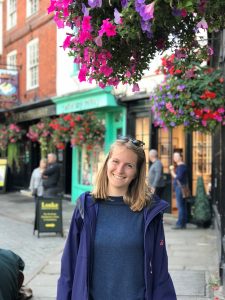 Music has always been a very important part of my life. I have been playing the recorder and the cello for 15 and 13 years respectively. In various orchestras and ensembles from Baroque to contemporary music, some of them international, I have experienced how music does not know any borders.
Music has always been a very important part of my life. I have been playing the recorder and the cello for 15 and 13 years respectively. In various orchestras and ensembles from Baroque to contemporary music, some of them international, I have experienced how music does not know any borders.
Making music together with others has always been a great pleasure for me – creating something amazing with people who share your passion is just wonderful. I started studying Psychology in Würzburg, Germany in April 2018 and since then I belong to the Academic Orchestra and a choir. I am very happy about that, not only because of the great music we make, but also because I have met so many nice people from different backgrounds, studying different subjects. Therefore, when I applied for Erasmus at the University of Kent, I was very glad to read about the Music Department with all its various possibilities.
During Welcome Week, I first got in touch with members of the Music Society and they were very friendly and welcoming from the start! In the following weeks, I joined the Symphony Orchestra and the Cecilian Choir, the String Sinfonia and the Pops Orchestra – I didn’t quite expect to be this involved with music at Kent, but I am more than happy about it and enjoy playing in these groups very much! In addition to the regular ensembles, there are some smaller formations for various occasions. Together with Jeni, a violist, I played a duet in the second Open Mic Night of the Music Society. Two weeks ago, I played in a concert in Calais with the University Camerata which was a great experience and I feel very honoured that I was selected for this ensemble.
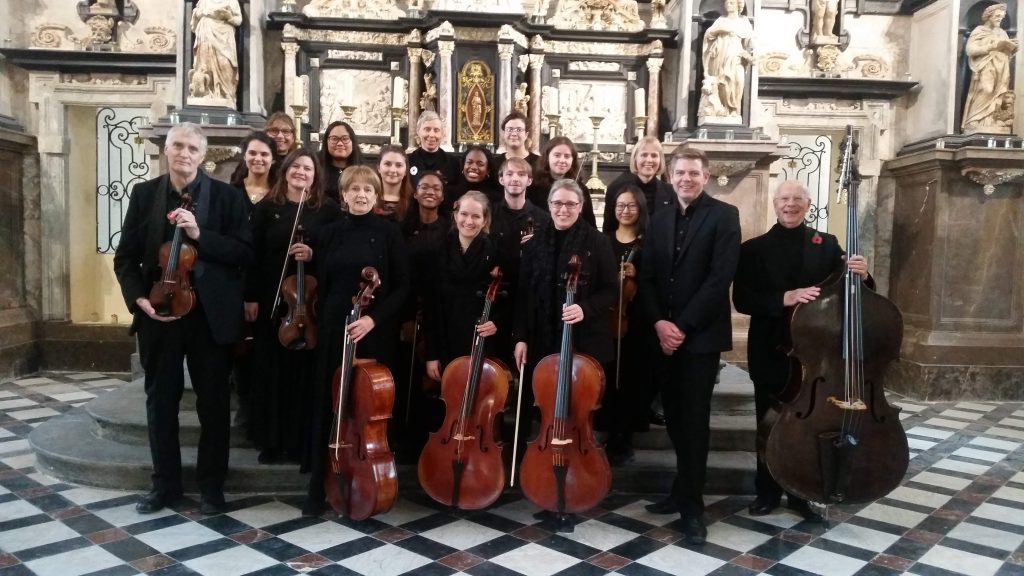
The second concert in Kent for me was the Nostalgia Night with the Cecilian Choir.
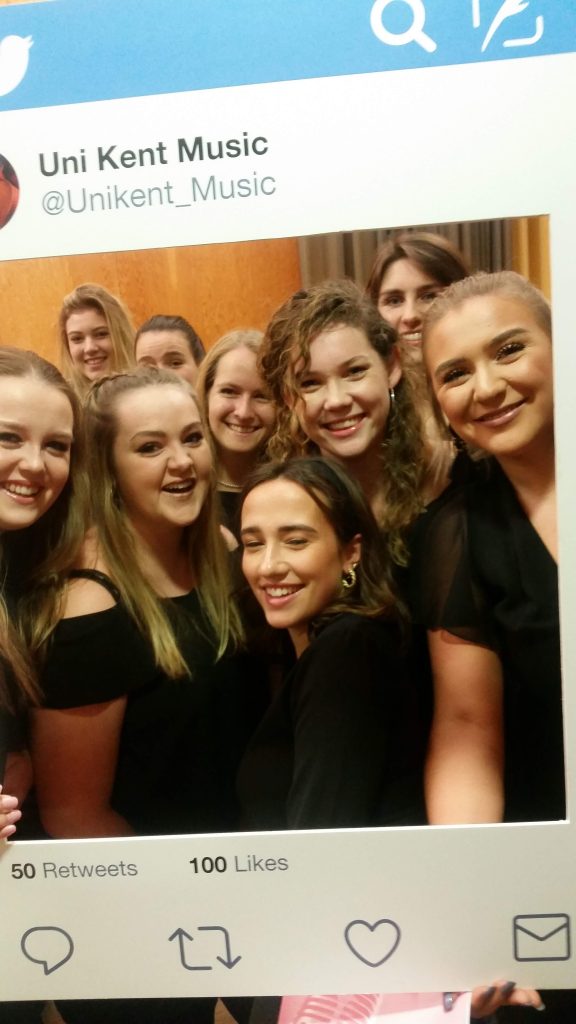 I am very excited for our next performance, the meditative Advent Breathing Space with Christmas carols and antiphons in a candlelit medieval church this Friday.
I am very excited for our next performance, the meditative Advent Breathing Space with Christmas carols and antiphons in a candlelit medieval church this Friday.
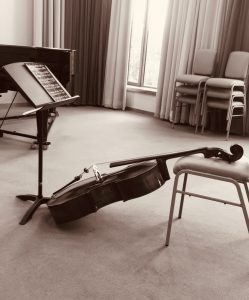 Even though you cannot study music on the University’s Canterbury campus, the Music Department offers an amazing variety of opportunities for students who want to get involved. It feels like all the different musicians and ensembles are part of one big family. I am very grateful to be part of that family.
Even though you cannot study music on the University’s Canterbury campus, the Music Department offers an amazing variety of opportunities for students who want to get involved. It feels like all the different musicians and ensembles are part of one big family. I am very grateful to be part of that family.

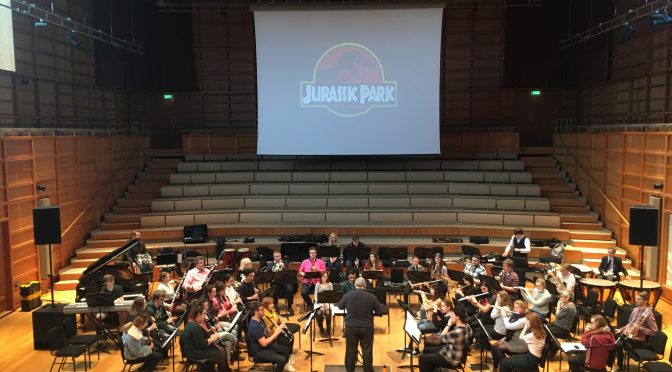
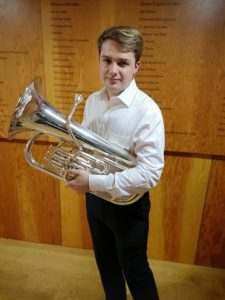 I picked up the Baritone as a second instrument halfway through Junior School and began to play in the school’s orchestra. Although the sound produced was crude in retrospect, I enjoyed playing with the type of ensemble and would return to playing in this setting much later in the form of brass ensembles, dectets and concert bands.
I picked up the Baritone as a second instrument halfway through Junior School and began to play in the school’s orchestra. Although the sound produced was crude in retrospect, I enjoyed playing with the type of ensemble and would return to playing in this setting much later in the form of brass ensembles, dectets and concert bands.
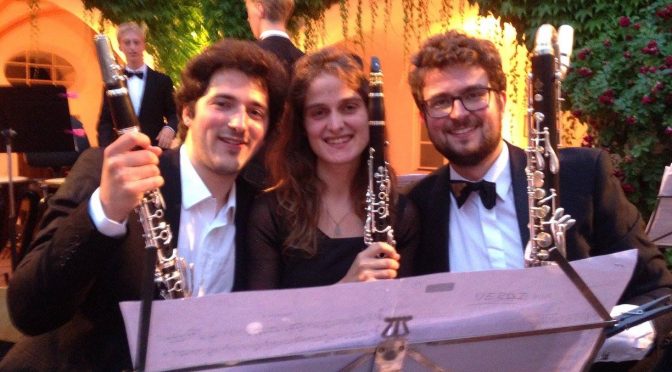
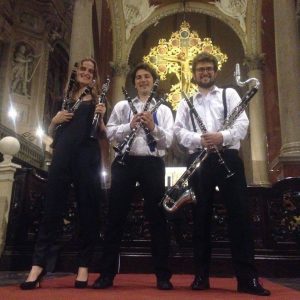 My musical journey started with clarinet lessons at age 7, which I continued all through primary and secondary school. A few years later, I joined a local wind orchestra where I worked my way from third clarinet in the youth band to first clarinet in the main orchestra in a few years time. Meanwhile, I taught myself to play drums and played in a few small bands, unfortunately none of which made it very far.
My musical journey started with clarinet lessons at age 7, which I continued all through primary and secondary school. A few years later, I joined a local wind orchestra where I worked my way from third clarinet in the youth band to first clarinet in the main orchestra in a few years time. Meanwhile, I taught myself to play drums and played in a few small bands, unfortunately none of which made it very far.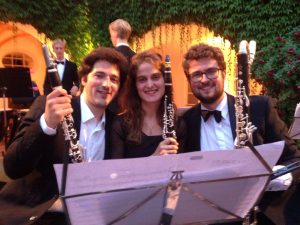 After a trial lesson at the Amsterdam conservatoire, I decided to not enrol there but instead pursue a science degree. I studied at the University of Amsterdam for six years, obtaining first a BSc in Natural and Social Sciences, then an MSc in Theoretical Physics. During this time, my music-making was mostly on hold, with the exception of a band I started with a few friends during the master’s. We played a few gigs, but when our frontman moved to Germany to pursue a PhD, we decided to quit while ahead.
After a trial lesson at the Amsterdam conservatoire, I decided to not enrol there but instead pursue a science degree. I studied at the University of Amsterdam for six years, obtaining first a BSc in Natural and Social Sciences, then an MSc in Theoretical Physics. During this time, my music-making was mostly on hold, with the exception of a band I started with a few friends during the master’s. We played a few gigs, but when our frontman moved to Germany to pursue a PhD, we decided to quit while ahead.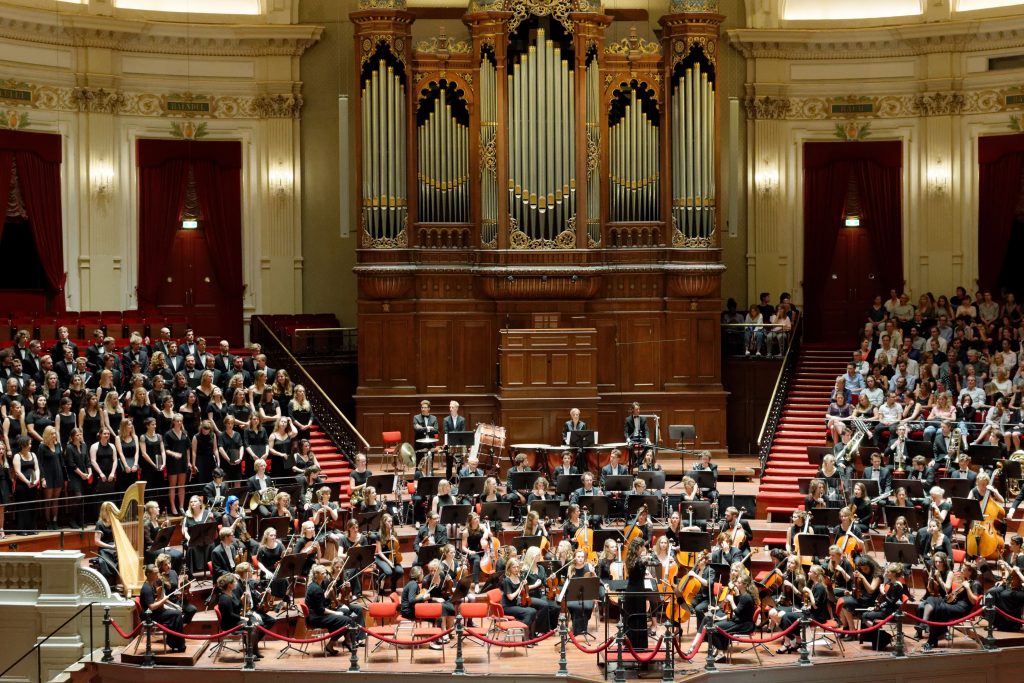
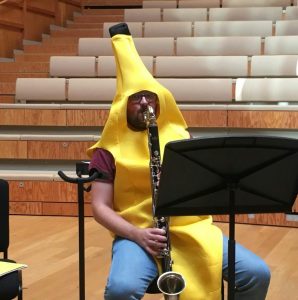 By this time, I had accepted a PhD position with Gunnar Möller at the University of Kent, so in the summer of 2017 I moved from Amsterdam to Canterbury in pursuit of science. Here, I joined the lively music programme, which awed me with its beautiful concert hall and proceeded to take over most of my free time. During my first year at Kent, I played bass clarinet and percussion in the University Symphony Orchestra and Concert Band, sang bass in the Chorus, joined the pit band for two musical theatre shows and started a woodwind quartet.
By this time, I had accepted a PhD position with Gunnar Möller at the University of Kent, so in the summer of 2017 I moved from Amsterdam to Canterbury in pursuit of science. Here, I joined the lively music programme, which awed me with its beautiful concert hall and proceeded to take over most of my free time. During my first year at Kent, I played bass clarinet and percussion in the University Symphony Orchestra and Concert Band, sang bass in the Chorus, joined the pit band for two musical theatre shows and started a woodwind quartet.